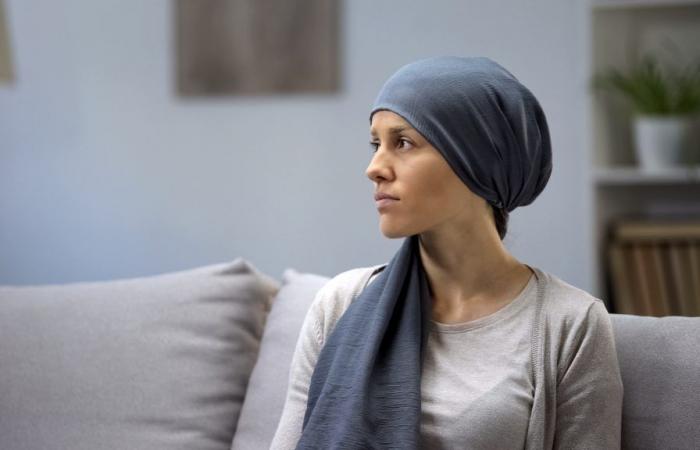In breast cancer, older women, with a history of psychiatric disorders, anxiety or cognitive disorders for example, are more at risk of depression after the disease, according to a survey presented by the Gustave-Roussy Institute at the Asco congress on June 3. Therefore, appropriate preventive strategies could be deployed as soon as the diagnosis is announced. Communicated.
Depressive symptoms are common in women with breast cancer. They lead to an impairment of quality of life, are associated with poorer treatment compliance and an increased risk of death. A survey presented at the congress organized by theAmerican Society of Clinical Oncology (Asco) on June 3, 2024 by Doctor Antonio Di Meglio, medical oncologist at Gustave Roussy, specialist in breast cancer and researcher within the “After Cancer” team, looked at the determinants of depression over time. of breast cancer. Its work has made it possible to identify a certain number of risk factors, with a view to implementing targeted strategies to prevent this risk.
Methodology
To carry out this work, the Gustave Roussy team of researchers relied on the CANTO cohort, promoted by Unicancer, launched in 2012 in 26 centers in France and made up of 14,000 women with localized breast cancer. This cohort collects multiple data concerning the clinical characteristics of patients, socio-economic information, medical history, type of cancer, treatments, their toxicity and even disorders associated with cancer.
The study led by Doctor di Meglio focuses on possible depressive disorders in 9,087 patients in this cohort. All were followed for six years after diagnosis. All of these women benefited from surgery, approximately 90% from radiotherapy, 82% from hormonal therapy and 53% from chemotherapy.
“This work allowed us to identify several groups of women based on their depressive symptomsexplains Doctor Antonio di Meglio. In total, 70% of them had few or no depressive symptoms, at diagnosis and treatment, during the 6 years of follow-up. Nearly 7% of patients in this study already had depressive disorders at the time of diagnosis, disorders which resolved very quickly after active treatment (surgery, chemotherapy, radiotherapy). On the other hand, 20% of these women developed depression during the treatment phase or during the six-year follow-up, even though they did not necessarily have depressive disorders before diagnosis. » It also appeared that the active treatment phase was the most at risk for the appearance and worsening of depressive symptoms. On the other hand, the type of treatment received does not appear to be a risk factor for depression.
The search for determinants associated with depression in this cohort of women made it possible to precisely identify several risk factors. Thus, if this cohort concerns women aged 20 to 85, it appears that the oldest have an increased risk of depression, as do those with a high body mass index (overweight or obese) and those with a socio-economic level. -lower economic. Women with a history of psychiatric disorders, those already complaining of greater fatigue, suffering from anxiety problems, cognitive disorders or even having a poor body image of themselves at the time of diagnosis were also more likely to present depressive symptoms.
These patients who presented with depressive disorders following breast cancer also mentioned a greater impact of cancer in their lives: positive impact with more altruism, empathy towards others, greater awareness of health ; but also negative impact with more worry in general, particularly concerning employment and relationships with the partner. During the treatment phase, most often associated with the onset of depressive disorder, a change in lifestyle, with weight gain, reduction in physical activity, increased alcohol consumption, was associated with symptoms. more serious depression.
This work makes it possible to better identify, from diagnosis, those most at risk of depression among women with breast cancer, in order to implement prevention and treatment strategies. “Screening and monitoring depressive symptoms are essential to intercept the psychological vulnerability of women diagnosed with breast cancer”concludes Dr. Di Meglio. “Adapted psychological support as well as interventions aimed at reducing health risk behaviors such as weight gain, sedentary lifestyle and alcohol consumption, particularly during the treatment phase, could help reduce depressive symptoms in the long term after treatment. ‘breast cancer’.
Abstract n°12009 – Patterns of depressive symptoms among survivors of early-stage breast cancer (BC) – Clinical science symposium






